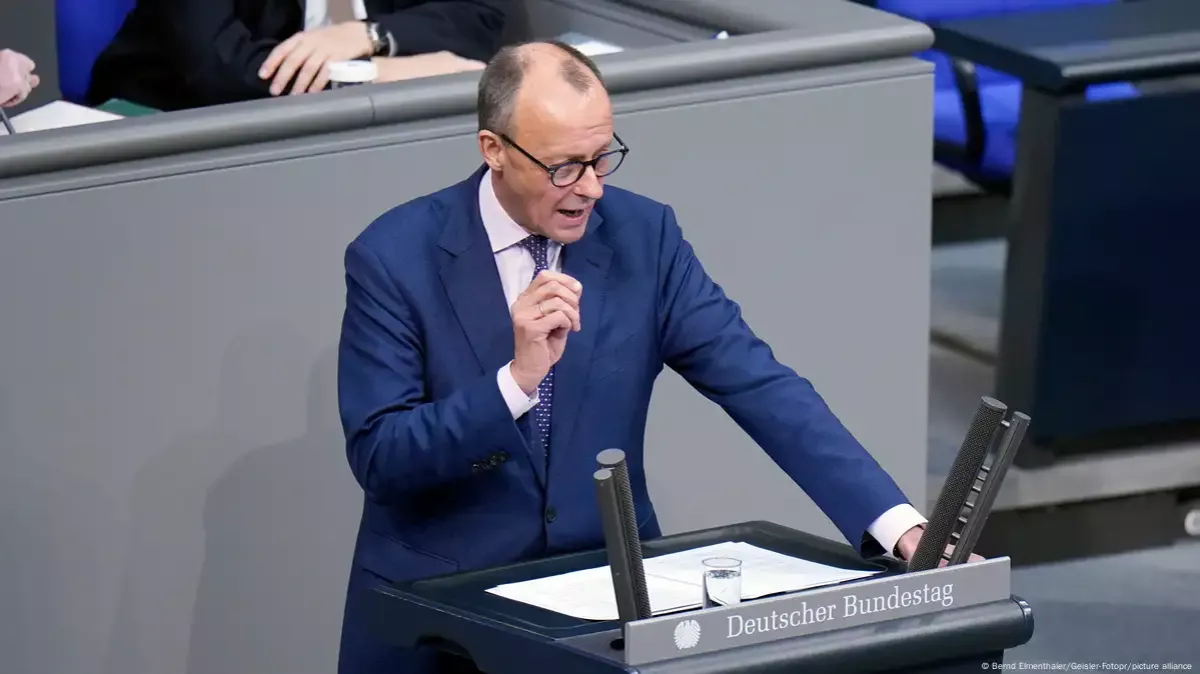Can Germany’s new coalition hold together? Merz’s leadership tested
After several weeks of tense negotiations, the creation of a ruling coalition was finally announced in Germany. The leader of the Christian Democratic Union (CDU)/Christian Social Union (CSU) bloc, Friedrich Merz, who recently won the snap parliamentary elections, will become the Chancellor.
To secure an absolute majority, Friedrich Merz had to seek allies and negotiate with political opponents from the Social Democratic Party (SPD). The negotiations were complex, held behind closed doors, and some participants shared conflicting information, ranging from confidence in success to acknowledging deep disagreements. The sticking points included taxes, social spending, and migration policy.
Ultimately, a compromise was reached. According to the 144-page text of the agreement, the parties agreed to establish an expert commission on modernizing the “debt brake”; reduce taxes by 1% annually for five years, starting in 2028; cancel the possibility of acquiring German citizenship after three years; introduce voluntary military service; and cut budgetary spending, including voluntary funding for international organizations.
According to German media, the positions in the cabinet of the new government will be allocated as follows: representatives of the CDU will head the ministries of foreign affairs, health, transportation, economy and energy, family, as well as the new ministry of digital and state modernization, while the CSU will take the ministries of the interior, education, and agriculture. SPD members will head the ministries of finance, defense, economic development, labor, environment, construction, and justice.
However, instead of triumph, there is a sense of confusion within the coalition bloc, with signs of a potential future split rather than consolidation. Merz's appointment is already being described as a compromise on the verge of betrayal, and experts predict a shaky future for the new cabinet. All commentators unanimously emphasize that Merz’s victory came at a high price—primarily a reputational one.

Friedrich Merz built his campaign on the image of a conservative pragmatist, a proponent of financial discipline and a tough migration policy. However, in coalition with the social democrats, he had to abandon some of these principles. Right from the start, long before the formal agreement with the SPD, he agreed to a large-scale rearmament program funded by loans, thereby overcoming the so-called "debt brake," meaning he went against his promises to avoid an increase in national debt.
Such concessions provoked anger among his party members. The youth wing of the CDU accused the leader of submitting to the "left-wing mainstream," with some even threatening to vote against the coalition.
However, the aforementioned "failure" on the issue of national debt was offset by Merz’s announcement of a project to tighten migration policy—these plans became part of the coalition agreement with the social democrats. The parties managed to agree on halting the entry of migrants into Germany at the border, even if they had applied for asylum. Family reunification will be suspended for two years, voluntary refugee acceptance programs will be halted, and the list of safe countries for deportation will be expanded. Furthermore, the deportation of criminals to Afghanistan and Syria will become possible. Border control in Germany will be strengthened.

At the same time, it seems unlikely that this step (which, in any case, is a compromise) will significantly help Merz. According to the latest polls, the CDU/CSU’s rating is declining, and the far-right "Alternative for Germany" (AfD) has, for the first time, overtaken the bloc, gaining 25% support—clearly at the expense of former supporters of the victorious bloc.
Despite the criticism at home, Merz enjoys more support on the international stage. This is not surprising, as he is virtually the only European leader who clearly advocates for the need to "get Europe back on its feet," to counter its interests with those of the U.S., and to play a leading role in changing the security architecture on the continent. He has the backing of the European Commission, and Politico has already called Merz "Europe’s most powerful leader."
"The differences between the U.S. and Europe have acquired an entirely new dimension. It's no longer just about defense issues. Now, it’s about our fundamental understanding of democracy and an open society," Merz wrote after the famous speech by U.S. Vice President Jay D. Vance at the Munich Conference. Even the rearmament project, for which he sacrificed part of his reputation back home in Germany, has sparked enthusiasm across Europe.
However, Merz was not elected by Europeans, but by Germans, and he leads not the EU, but Germany—even if it is the most important country in the European Union. The political architecture of the new government resembles a building on a shaky foundation. The broad coalition dilutes the agenda, and compromises are irritating the core of both parties. Strong pressure also comes from the external environment: Germany’s economic growth is nearing zero, the U.S. is imposing tariffs on European goods, and defense spending is rapidly increasing.
In these conditions, Merz must not only govern the country but also maintain a balance between conflicting interests. Any miscalculation could lead to a government crisis—and then "Europe’s most powerful leader" risks becoming a quickly forgotten political figure on the continent.








